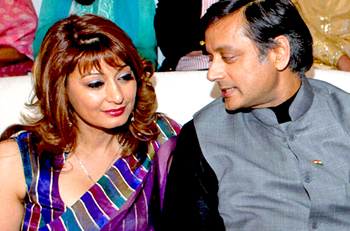Mumbai, Apr 2: NCP chief Sharad Pawar on Thursday
urged Muslims to observe Shab-e-Barat staying inside their homes, and also suggested that the birth anniversary celebrations of Dalit icon Dr B R Ambedkar be postponed in view of the coronavirus outbreak.
Pawar said Ram Navami, being observed on Thursday, is celebrated with fervour every year across the country.
"Unfortunately, there is this threat of coronavirus this year and we have to observe some restrictions...but I am sure people must be remembering Lord Ram staying inside their homes," he said in his address via Facebook.
Shab-e-Barat, also known as the night of forgiveness,will be observed on April 8.
Members of the Muslim community visit graveyards to remember their relatives who are no more, Pawar said, and called for taking precautions to avoid gathering of people given the coronavirus crisis.
Pawar said congregation such as the one held last month in Delhi's Nizamuddin area by Tablighi Jamaat could have been avoided, and urged people to ensure there is no repeat of such meetings on Shab-e-Barat.
"The meeting should have been avoided, but it was notand others may have to pay for it," Pawar said referring to the religious meeting in the national capital.
He said the "possibility of some people who attended the meeting carrying the disease cannot be ruled out" and pressed for maintaining discipline given the situation caused by the COVID-19 outbreak.
"Shab-e-Barat is on April 8. Muslims remember their relatives, who are not more, by visiting kabrastan (graveyard). It should be observed inside home. Precaution should be taken to see there is no repeat of the Nizamuddin meeting-like episode," he said.
The birth anniversary of Ambedkar, the architect of the Indian Constitution, is observed on April 14.
Pawar said people should also think about postponing Ambedkar's birth anniversary celebrations.
"We normally celebrate it (the anniversary) for two or so months. We should think whether we should really observe the programme at this juncture (given the coronavirus threat).
If we come together, we may have to face health issues," the former Union minister said.
He said in general, 90 per cent people have been observing the lockdown, but 10 per cent are not doing so.
The Centre and the Maharashtra government may have to extend the lockdown period if discipline is not observed till April 14 (till when the lockdown is in force), he said, urging people to toe the line in the interest of each other.
Pawar also praised Chief Minister Uddhav Thackeray, the state administration and police for working round-the- clock, and asked people to cooperate with them by staying at home.






Comments
Add new comment